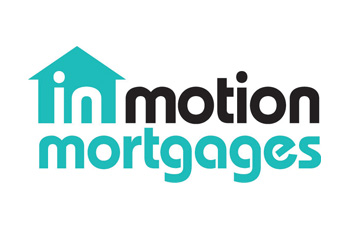Analyzing Different Types of Equity Release Mortgages You Can Choose From
Analyzing Different Types of Equity Release Mortgages You Can Choose From
Blog Article
Exploring the Various Sorts Of Equity Release Mortgages Available Today
Equity Release home loans present various alternatives for house owners aged 55 and over. equity release mortgages. These economic products satisfy various requirements and choices, permitting people to gain access to funds from their residential property. From lifetime home mortgages to common admiration mortgages, each type uses distinct advantages. Recognizing these options is vital for making notified choices. What aspects should one think about when selecting one of the most suitable equity Release strategy? The details that follow might lose light on this crucial topic
Recognizing Equity Release Mortgages
Equity Release home loans give house owners, typically those aged 55 and over, with a way to access the value locked up in their home without needing to market it. This monetary choice permits individuals to convert a section of their home equity right into money, which can be made use of for numerous objectives, such as home improvements, paying off financial obligations, or funding retirement.Equity Release can take different types, but it essentially includes borrowing against the worth of the home while retaining ownership. Homeowners can pick to receive a swelling amount or a collection of smaller repayments, relying on their economic requirements and preferences.Additionally, the quantity offered for Release is influenced by the residential or commercial property's worth, the homeowner's age, and details lender requirements. Overall, comprehending equity Release mortgages is necessary for house owners to make informed decisions about touching right into their home's equity while considering the long-term effects.
Life time Mortgages
Lifetime mortgages stand for among the most prominent types of equity Release. This economic product permits house owners, usually aged 55 or older, to obtain against the worth of their building while retaining possession. The car loan, which is secured against the home, accrues rate of interest over time but does not call for month-to-month repayments. Instead, the finance and accrued passion are paid off when the home owner dies or moves right into long-lasting care.Lifetime home mortgages supply flexibility, as debtors can choose to obtain a round figure or choose a drawdown facility, accessing funds as needed. Notably, several strategies featured a no-negative-equity guarantee, guaranteeing that consumers will certainly never owe greater than the value of their home. This attribute gives peace of mind, enabling individuals to enjoy their retired life without the fear of depleting their estate. Generally, life time mortgages work as a sensible choice for those seeking financial backing in later life.
Home Reversion Program

Drawdown Life Time Mortgages
While lots of house owners seek means to access their wide range, drawdown life time mortgages provide an adaptable alternative that enables people to Release funds gradually. This kind of equity Release home loan allows property owners to obtain against the worth of their property while preserving possession. Unlike standard lifetime mortgages, drawdown plans permit consumers to access a section of their equity upfront and withdraw extra funds as needed, approximately a fixed limit.This function can be particularly helpful for those who desire to manage their finances carefully, as it reduces passion buildup by only charging interest on the quantities attracted. Furthermore, drawdown lifetime home mortgages typically include a "no adverse equity warranty," guaranteeing that consumers will certainly never ever owe more than their home's worth. This alternative fits retirees who want monetary safety and versatility, permitting them to meet unforeseen expenses or keep their way of living without having to sell their residential property.
Boosted Lifetime Mortgages
Boosted Lifetime Home mortgages provide distinct advantages for eligible property owners looking for to Release equity from their residential properties. Understanding the eligibility requirements is necessary, as it identifies who can take advantage of these specialized fundings. It is likewise important to review the prospective disadvantages linked with enhanced choices, guaranteeing an all-round perspective on their usage.
Qualification Standards Described
Recognizing the eligibility standards for Boosted Life time Mortgages is necessary for prospective applicants seeking to access the equity in their homes. Usually, candidates need to be aged 55 or older, as this age requirement is standard in the equity Release market. House owners ought to have a building valued at a minimum limit, which can differ by loan provider. Importantly, the residential property has to be their main house and in great condition. Lenders commonly assess the property owner's health condition, as certain health and wellness conditions might enhance eligibility and benefits. Furthermore, applicants must not have existing considerable debts protected against the building. Satisfying these criteria enables individuals to discover Boosted Life time Mortgages as a feasible choice for accessing funds connected up in their homes.
Benefits of Enhanced Home Mortgages
After clarifying the eligibility criteria, it comes to be noticeable that Enhanced Lifetime Mortgages provide numerous considerable benefits for house owners wanting to take advantage of their home equity. Mainly, they supply accessibility to a larger loan amount compared to conventional lifetime home loans, profiting those with health and wellness conditions or age-related variables that raise their life expectancy risk. This enhanced loaning capability allows house owners to fulfill different monetary demands, such as home enhancements or retired life costs. Furthermore, these home mortgages normally feature adaptable payment alternatives, allowing customers to handle their financial resources more effectively. The no-negative-equity guarantee further guarantees that property owners will certainly never owe more than their building's worth, giving satisfaction. On The Whole, Boosted Lifetime Home mortgages provide an engaging option for eligible home owners seeking economic remedies.
Possible Disadvantages Considered
While Improved Lifetime Mortgages offer various benefits, possible drawbacks warrant cautious factor to consider. One considerable worry is the effect on inheritance; the equity released minimizes the worth of the estate delegated recipients. In addition, these home loans can build up significant rate of interest over time, bring about a substantial debt that might exceed the initial finance amount. There may also be restrictions on residential or commercial property adjustments or rental, restricting property owners' adaptability. Furthermore, enhanced items typically need specific health and wellness conditions, meaning not all house owners will certainly qualify. Managing the fees and costs associated with these home mortgages can be intricate, potentially leading to unanticipated prices. Therefore, people ought to thoroughly evaluate their circumstance and seek advice from monetary consultants prior to proceeding.
Shared Admiration Home Mortgages
Shared Gratitude Home mortgages stand for a special monetary setup that allows property owners to accessibility equity while sharing future property worth boosts with the lender. This technique supplies prospective benefits such as minimized monthly payments, however it additionally includes downsides that should be very carefully taken into consideration. Comprehending the eligibility needs is vital for those curious about this option.
Principle Overview
Equity Release mortgages, particularly in the kind of shared admiration mortgages, supply house owners an one-of-a-kind economic service that allows them to access funds by leveraging the worth of their residential property. In this arrangement, a lending institution gives a car loan to the home owner, which is usually paid off through a share of the home's future appreciation in value. This suggests that when the property owner markets the residential or commercial property or passes away, the lending institution receives a percent of the enhanced worth, as opposed to just the first car loan quantity. Shared admiration home mortgages can be appealing for those aiming to supplement their revenue or financing considerable costs while preserving possession of their home. Nevertheless, the economic effects of shared recognition have to be very carefully considered by possible customers.
Disadvantages and advantages
Shared appreciation home mortgages can give considerable economic benefits, they additionally come with significant disadvantages that prospective customers need to consider. These mortgages permit home owners to access equity in their homes while sharing a section of any kind of future recognition with the lender. This arrangement can be useful during times of increasing property worths, offering significant funds without regular monthly payments. The major downside is the potential loss of equity; property owners might end up with considerably reduced inheritance for successors. Additionally, the intricacy of the terms can bring about misconceptions pertaining to repayment obligations and the percentage of gratitude owed. As a result, it is vital for consumers to weigh these elements thoroughly prior to committing to a shared gratitude home mortgage.
Eligibility Needs
What requirements must home owners fulfill to get approved for a shared admiration home loan? Mainly, candidates should go to the very least 55 years old, assuring they are within the target market for equity Release products. Additionally, the building must be their key home and typically valued above a defined minimum threshold, usually around ? 100,000. Lenders additionally analyze the property owner's economic conditions, consisting of earnings and arrearages, to determine they can take care of the home mortgage responsibly. Importantly, the residential property should be in great condition and totally free from substantial legal encumbrances. Home owners need to likewise have a clear understanding of the terms, including just how recognition will be shown to the lender upon sale or transfer of the building, as this affects overall returns.
Picking the Right Equity Release Option

Frequently Asked Questions
What Age Do I Required to Be for Equity Release?
The age requirement for equity Release normally starts at 55 for the majority of strategies. However, some carriers may offer choices for those aged 60 and above, mirroring differing terms based on specific scenarios and lending institution policies.
Will Equity Release Influence My Inheritance?
Equity Release can affect inheritance, as the amount borrowed plus interest minimizes the estate's value. Successors may obtain less than prepared for, depending on the property's recognition and the total debt at the time of passing.
Can I Relocate Residence With Equity Release?
The question of relocating house with equity Release emerges often. Usually, people can transfer their equity Release plan to a new property, however particular conditions may apply, calling for consultation with the lender for support.
Are There Costs Connected With Equity Release Mortgages?
Charges related to equity Release home mortgages can include plan charges, valuation costs, and lawful expenses. Additionally, there may be early repayment costs, which can influence the general price and monetary ramifications for the customer.
Just How Does Equity Release Influence My Tax Obligation Situation?
Equity Release can impact one's tax scenario by potentially boosting gross income, as released funds are thought about funding. It usually does not sustain immediate tax obligations, making it necessary to consult a financial consultant for individualized guidance.
Conclusion
In summary, the variety of equity Release home mortgages offered today provides house owners aged 55 and over several pathways to access their home's worth - equity release mortgages. Whether going with a life time home mortgage, home reversion plan, or other choices, each alternative provides distinctive advantages tailored to specific economic requirements. Mindful consideration and examination with a monetary advisor are important to guarantee the chosen equity Release option straightens with personal objectives and economic situations, ultimately facilitating notified decision-making for a safe monetary future. Equity Release home mortgages present numerous alternatives for home owners aged 55 and over. Equity Release home mortgages supply homeowners, generally those aged 55 and over, with a method to access the worth tied up in their residential property without needing to market it. Enhanced Lifetime Home mortgages offer distinct advantages for qualified house owners seeking to Release equity from their residential or commercial properties. Equity Release mortgages, official site specifically in the type of shared appreciation mortgages, offer property owners an unique monetary solution that permits them to accessibility funds by leveraging the worth of their residential property. In recap, the range of equity Release mortgages available today provides house owners aged 55 and over multiple paths to access their property's value
Report this page